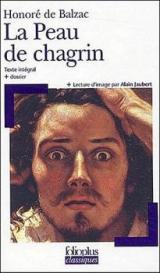 These past days I have been reading Thomas Piketty’s Capital in the Twenty-First Century. In one of the chapters in which he discusses the weight carried by wealth inherited in contraposition to wealth earned by means of a salary, he brings up the speech of one the characters of the book (Vautrin) in which this person tries to convince Rastiganc that there is no point in pursuing a career as a judge if he wants to make good money: the only direct path towards opulence is marrying the heiress of a substantial fortune. Piketty brings up in several occasions 19th century classics such as Le Père Goriot or Pride and Prejudice to talk about matters concerning revenues generated by capital, salaries, inequality, inflation (or rather lack of inflation) and the like. Le Père Goriot had been collecting dust in the shelf I keep for the “still-to-be-read” books, and, thus driven by a very prosaic curiosity, I embarked on the reading of one of Balzac’s most famous works.
These past days I have been reading Thomas Piketty’s Capital in the Twenty-First Century. In one of the chapters in which he discusses the weight carried by wealth inherited in contraposition to wealth earned by means of a salary, he brings up the speech of one the characters of the book (Vautrin) in which this person tries to convince Rastiganc that there is no point in pursuing a career as a judge if he wants to make good money: the only direct path towards opulence is marrying the heiress of a substantial fortune. Piketty brings up in several occasions 19th century classics such as Le Père Goriot or Pride and Prejudice to talk about matters concerning revenues generated by capital, salaries, inequality, inflation (or rather lack of inflation) and the like. Le Père Goriot had been collecting dust in the shelf I keep for the “still-to-be-read” books, and, thus driven by a very prosaic curiosity, I embarked on the reading of one of Balzac’s most famous works.
I did not care much for the characters and their coming and goings. I was looking for the depiction of ruthless capitalism at its purest state. But, was really capitalism what I encountered? Where were the industrious entrepreneurs healthily competing and looking for their share of the market while aided by an invisible hand? Nowhere to be seen. Instead I came across a bunch of bon vivants whose wealth had been inherited and whose parents had accumulated it by suspicious means, to say the least, father Goriot included.
This is, by the way, the regular lot of the majority of the 19th century novels. Many critics have pointed out that while Austen’s characters enjoyed themselves ball after ball or brooded over the intricacies of love and social acquaintances, millions were dying in the battlefields of Europe and thousands of slaves worked in the plantations sowing and harvesting the riches that paid those countryside mansions, carriages, jewels and fashionable dresses. This is of course no novelty. We all know that sometimes you have to intentionally overlook this world’s injustices to make the most of its pleasures. For me the difference was that this time I cared less about the personal experiences of the characters and much more about the nature of the society in which they live, which, let’s be honest, does not differ so much from the world we live in at the beginning of the 21st century.
It is still unclear to me whether Balzac really intended to criticize the back then socially accepted fact that most people’s wealth came from inheritance or through well-chosen marriage. The question is, even if Balzac is honestly advocating for a fairer society, and not only testifying that 1819 Paris was far from the moral standards to be demanded of a pure and honest society, were his contemporaries really worried by the debauchery and idleness around them? Well, surely as much as our contemporaries are.
There is no doubt at any rate that 1830s people put up more than we do with the idea of a fortune gained by other means than hard work and sacrifice. Vautrin’s speech outlines a perspective, that of becoming rich by marrying a young lady, that was not totally undesirable to Rastignac’s eyes, much as he is a decent lad. He simply understands that in those days there was no shame in such a choice for a life. Vautrin is one of the most powerful characters of the book, for he incarnates what may be not its “core”, its intended message, but is at least its moral: that society is fundamentally made by hypocrites whose deeds betray their words.
Vautrin may be willing to crush someone’s life to get what he wants, but, then again, who is not? Is that member of the police services (apparently inspired on Vidocq) who eventually arrests him working for a more just cause by serving the interests of a state whose actions, whether by means of corruption or the law, sanction the immorality of the powerful and mighty? He certainly is not. To cap it all, Vautrin’s hinted sexual preferences suggest more than his degenerate vital drift, namely, society’s intolerance towards certain “sins” while others, such as bigamy or adultery, are not only put up with but openly celebrated.
Of course, such selfishness is embodied by Goriot’s daughters, whose total disregard for their father’s well-being or even health has become a paradigm of filial ingratitude. Balzac is too astute a writer to depict them as completely disagreeable ladies, a mere compound of the most regrettable traits in a full-grown personality. They are in fact too blinded by the own needs and the imminence of their petty problems to be aware of the pain they inflict on a third party. Sure, even though they are liable to be, and must indeed be held responsible for their irresponsible conduct, the question which cannot be evaded is the degree of responsibility borne by he who spoilt them by giving them all they wanted without the always advisable counterweight of the teaching that, however hard you believe it, your self is not the centre of the world.
This, of course, leads ultimately to Goriot himself. Traditionally regarded as the devoted father whose selfish daughters would not wave him goodbye by his deathbed. His fortune’s origins are more than doubtful. Once a wealthy man by means of his trade and left alone with his daughters after his wife’s death, is driven by an understandable craving for human love to grant his daughters every wish they uttered, thus spoiling them and ironically reaping only loneliness and rejection when they marry into the upper society. Poor Goriot, socially inept and looking awkward within certain social circles, is banned from his daughters mansions, or only allowed at odd times.
Certainly, if one had to condemn an excessively generous father or an unthankful daughter, the latter would seem to have committed the most outrageous crime, which goes even against one of the ten commands. But then again, Goriot’s sheer submission to his daughters’ whims and slights, his begging only for a drop of their attention turns him into a kind of moron incapable of judging the moral virtues or flaws of his daughters. He is, nonetheless, a lonely man and his lack of vision may be understood. But I do not comply with the traditional interpretation that has Goriot as the only victim.
Sure, no one here is a victim: Rastignac, perhaps the “cleanest” of all the book’s characters, pursues a life of luxuries and social success, albeit not to the extent of relinquishing his humanity; Vautrin is a criminal with no regard for any moral consideration, a cynic; Goriot’s daughters, as well as many other characters, have lost their capacity for compassion towards anyone other than themselves, and Goriot himself does not come unblemished out of a close scrutiny. Maybe the young Victorine, abandoned by her family and still a pure soul (by virtue of her very unhappiness?) will be left untouched after a moral judgement.
Ultimately, do we want pure characters? No, insofar as they are not to be found in real life and this is realism. Le Père Goriot is a comedy, a play, in which we see ourselves reflected, in which inequality, selfishness and an incapacity for long-term actions govern people’s lives. It is pretty obvious thay after two hundred years gone by things have not changed much. Back then they had wealthy inheritors, now we have super-executives.

